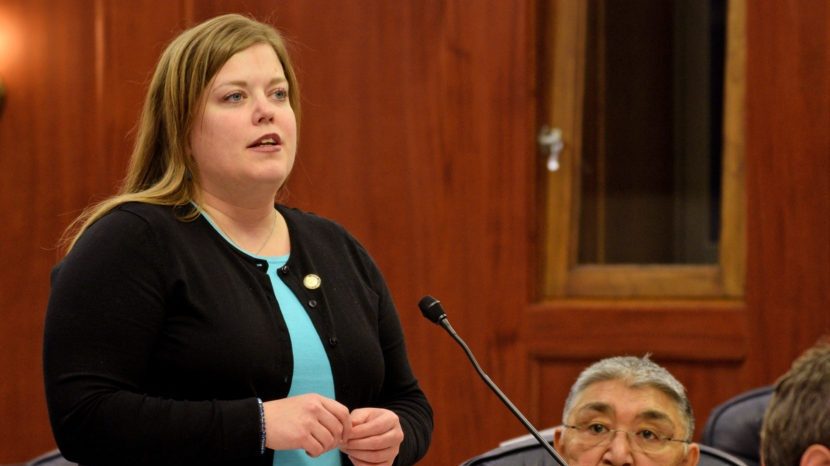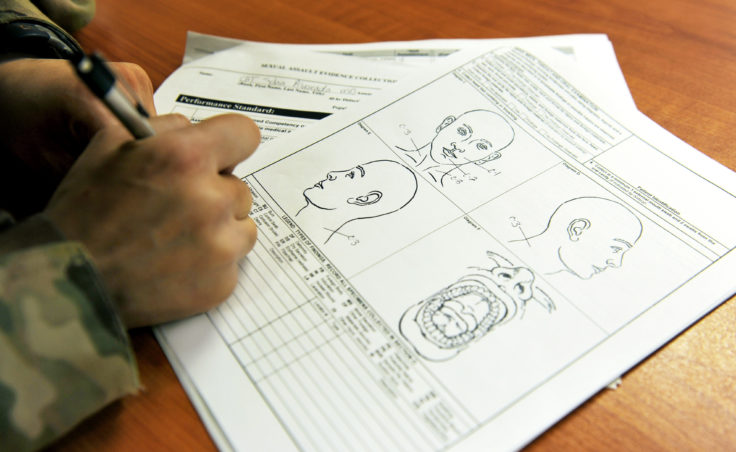A statewide audit of sexual assault kits that most law enforcement agencies participated in a year ago, revealed there are several thousand kits that haven’t been tested.
If you’re picturing stacks of hundreds of kits sitting in a line to be examined with police wringing their hands waiting to find out who did it, you’d be wrong.
Alaska Public Media reported that at the end of last year there were actually about 117 kits waiting for testing at the state crime lab.
Capt. Dan Lowden with the Alaska State Troopers said the audit turned up about 3,600 untested kits statewide and those are mostly kits that were never sent to the crime lab. He said the kits are just one piece of evidence used to close a case.
“So the kit by itself only establishes who might have committed this assault. In most of the sexual assaults in Alaska, we already know who did it,” Lowden said.
He said many times consent is the unknown variable and a sexual assault kit can’t help with that.
“If the kit is only there to help us with the who and we already know that, a lot of times agencies won’t submit the kit for examination because they already know that and it’s an expense that they don’t need to go through,” Lowden said.
There is an argument for testing kits even when you know the who, but more on that later.
Lowden also said sometimes evidence is collected in the kits but then the complainant decides they don’t want to go through an investigation. This is called anonymous reporting.
Law enforcement will hold onto the kits in case the person changes their mind.

House Bill 31 would require that agencies send all sexual assault kits to labs for testing within 18 months of receiving them.
State Representative Geran Tarr said agencies would also create a system to track those kits and to monitor which ones go untested. Tarr, an Anchorage Democrat, introduced the bill during a House State Affairs Committee meeting.
“We want to keep track of this. We want to know on (an) annual basis what our backlog is, what kind of job we’re doing,” Tarr said. “What this effort to end the backlog has shown across the country is (a) very dysfunctional system – not working. Victims are not getting the justice they deserve and dangerous criminals are out on the street to commit other crimes.”
Tarr said the bill’s provisions will cost about $200,000.
HB 31 would go into effect Jan. 1, next year. She said that date is meant to give the Department of Public Safety time to chip away at the number of untested kits and time to adjust to a new protocol.
The bill would require that law enforcement and other state agencies report the status of the untested kits by Sept. 1, this year.
Capt. Lowden said in principle, he agrees that testing more kits could help law enforcement, but he doesn’t know if it will lead to a dramatic rise in solved cases.
“A lot of jurisdictions have gone through what we’re going through. They go back, they’ve retested thousands and thousands of kits and they prosecute one or two new cases,” Lowden said.
Still, he said it was important to get the additional evidence in those cases.
“If one person (or) perpetrator was caught, then that’s a success story,” he said.
Lowden said law enforcement around the country are rethinking the way they use kits. He said many times investigators get in the habit of solving one case with one kit.
“However, we recognize that there are serial predators out there and by testing the kit, even if we know who did it this time, we might be able to solve previous cases that were unknowns,” he explained.
But there’s still the question of whether every kit should be tested, even the ones collected from people who don’t want to go through an investigation and potential court proceedings.
Tarr believes the evidence from the kits can be used while respecting the victim’s wishes.
Orin Dym, forensic laboratory manager with the state crime lab gave a very rough cost estimate for testing kits. He said it varies, but a kit tested by the state lab could cost about $1,000 and a kit contracted out to a private lab could cost about $1,500.
Dym said usually kits are examined in-house, but the state will have to use private labs to process most of the 3,600 untested kits.
An official with the governor’s office said a $1.1 million federal grant from the Department of Justice will help pay for tests on almost 1,000 sexual assault kits held by the Alaska State Troopers.
The money will also pay for a cold case investigator and a prosecutor to work the cases.



